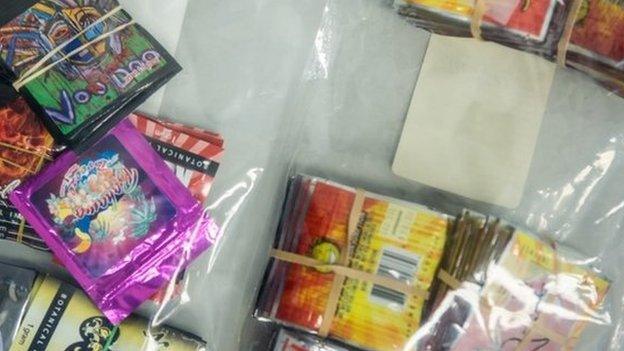'Legal highs' ban plan criticised by drugs charities
- Published
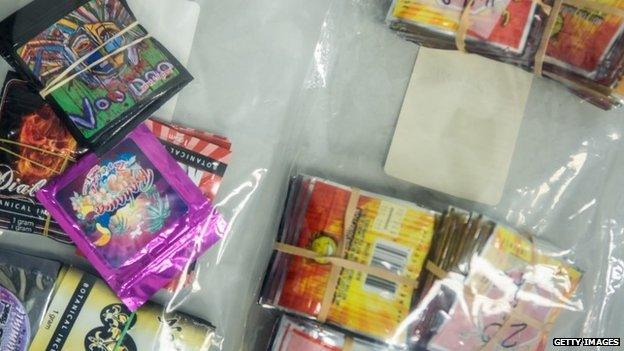
Deaths from 'legal highs' have more than doubled in the UK in the past four years
Drugs charities in Wales say plans to place a blanket ban on "legal highs" will only drive the drugs underground.
The Psychoactive Substances Bill, to be published on Friday, aims to ban the production, distribution, sale and supply of new psychoactive substances (NPS).
But charities Sands Cymru and Cais say it will not tackle the "huge social problem".
The UK government said the bill would give authorities "greater powers".
"It's an absolute waste of time," said Ifor Glyn, chief executive of Sands Cymru in Swansea.
"The fact that it's illegal doesn't have any impact on people using it.
"It doesn't drive the problem away. There are people out there who are buying and wanting these drugs. They will go on the internet.
"We've already seen somebody from Wales recently die after he bought drugs off the internet and it was five times more potent than heroin.
"We need to educate people about the risk of these drugs."

Under the Bill:
It will be an offence to produce, supply, offer to supply, possess with intent to supply, import or export psychoactive substances with a maximum sentence of seven years in prison
All of the UK will be affected by the blanket ban and law enforcement powers will be extended to any supply of NPS from UK websites, so they could be shut down
Alcohol, tobacco, caffeine, food and medical products will be excluded

Clive Wolfendale, chief executive of Cais, which is based in Llandudno, Conwy, and has offices across north Wales, agreed.
He said dealing with "legal highs" should be education based rather than enforcement.
"If you try to ban legal highs we'll drive it underground like heroin, cocaine and cannabis," said Mr Wolfendale, a former deputy chief constable of North Wales Police.
"Clearly this is a significant problem. Everybody agrees the substances are readily available and equally damaging.
"The prospect of a law which endeavours to keep a track on every substance is a very, very difficult thing to be able to do.
"This legislation is still running alongside legislation that makes alcohol and tobacco legal."
Minister of State for Policing, Crime, Criminal Justice and Victims, Mike Penning, said: "The blanket ban will give police and other law enforcement agencies greater powers to tackle the reckless trade in psychoactive substances, instead of having to take a substance-by-substance approach."
Owain Vaughan said he was told the substance was legal
- Published29 May 2015
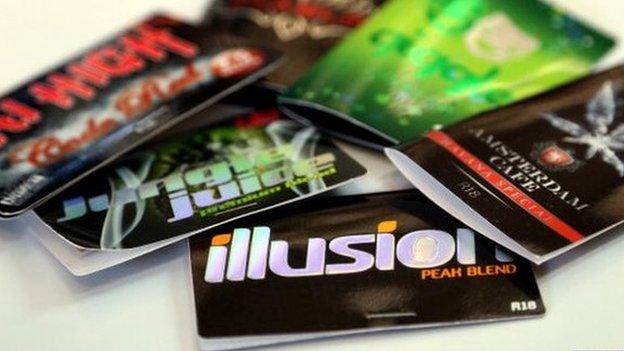
- Published26 May 2016
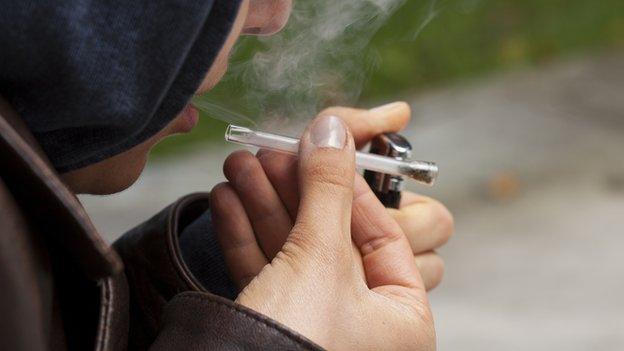
- Published7 May 2015
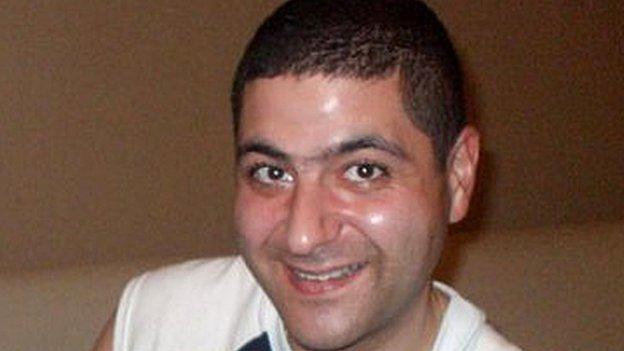
- Published30 March 2015
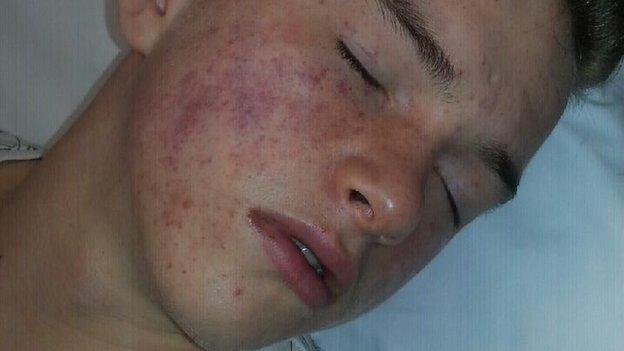
- Published14 November 2014
